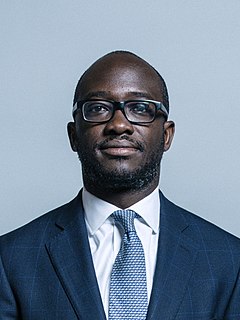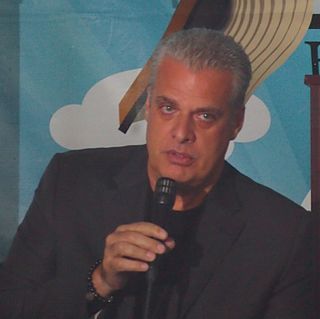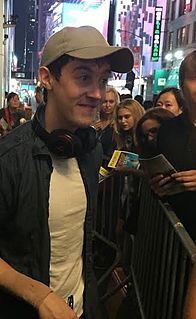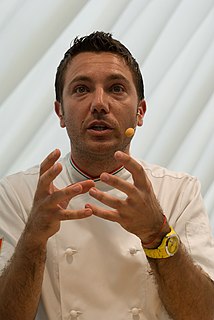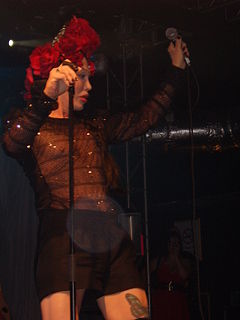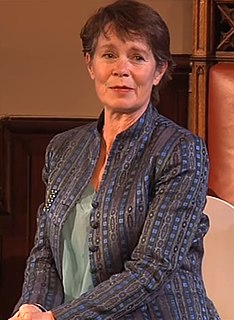A Quote by Sam Gyimah
As a child, my mother would read to me late into the night. I didn't enjoy it at the time but she always used to say that the inheritance she was going to leave us was a good education.
Related Quotes
I always say that comedians and actors were all kind of shy when they were young. I was very, believe it or not, kind of embarrassed as a child. But my mother was a very strong lady and she was the one that kept it going when I thought it would be over for me as a performer. She was always my inspiration and she was a big influence on me.
I have very vivid memories of being a young child. My mother would create dinner as for us, and when she would bake, she would leave some dough for me. I would roll the dough into little sticks while she was cooking the apple tart of whatever. I was looking through the window of the oven and flipping the light, and then my bread would come out, and it was inedible, of course.
My mother lived her life through movies and books - she read everything there was to read. And she read to me every night. I never went to sleep without her reading to me. And she fantasized about the book and she would talk about it, the place, and you would think that after she read the book and after she told you stories about it, that she had actually been there. I learned about story from her, and I learned the value of a great story, and the value of great characters.
A lot of people say that Eleanor Roosevelt wasn't a good mother. And there are two pieces to that story. One is, when they were very young, she was not a good mother. She was an unhappy mother. She was an unhappy wife. She had never known what it was to be a good mother. She didn't have a good mother of her own. And so there's a kind of parenting that doesn't happen.
I always credited my mother with inspiring me to be a writer because she was such a passionate reader. She read poetry to me as a child. But rather late in life, I've come to appreciate my father, the accountant. He was a solid, organized, get-the-job-done kind of person-and you need that piece of it to be a writer, too.
Prenatal education can only be an unconscious result of what the parents, particularly the mother, do. If, until the child is born, the mother acts in such a way that she expresses what is morally and intellectually correct, then what she accomplishes in her own continuing education will transfer to the child.
From a child, I knew I didn't have the face I wanted to have. My mother was a baroness. She was from Berlin; she was a silent movie actress and friends with Marlene Dietrich. So she knew all about film make-up and prosthetics and stuff like that and what they used to do in those days. And she taught me all that as a child.
Now, my mom did not read well and she read 'True Romance' magazines, but she read with me. And she would spend 30 minutes a day, her finger going along the page, and I learned to read. Eventually, by the time I was four and a half, she could iron and I could sit there and read the 'True Romance.' And that was wonderful.
If I look back, my mother was always out. I can remember the perfume and her scarlet chiffon dress and crystal beads, going to a party. She used to play her violin at restaurants later on in life and at old people's homes. She loved the races, which she used to take me to as a child: our carpets were bought with her winnings. Loved her chickens.
...fact was she knew more about them than she knew about herself, having never had the map to discover what she was like. Could she sing? (Was it nice to hear when she did?) Was she pretty? Was she a good friend? Could she have been a loving mother? A faithful wife? Have I got a sister and does she favor me? If my mother knew me would she like me? (140)
